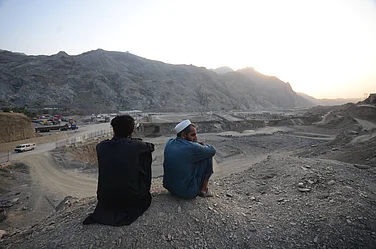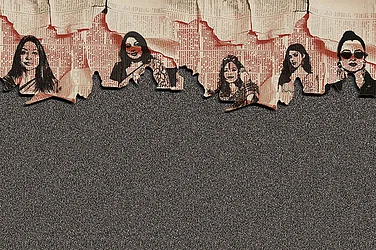Perhaps one of the most depressing aspects of our literary heritage is that ours must be one of the few cultures in the world where the learning and teaching of the main language, the mother tongue, is not just frowned upon but is actively discouraged.
Many of our greatest poets and short-fiction writers have written in Kashmiri and the tradition goes back to our oral literature, and of course to Sanskritic and Persian writing in Kashmir, but it is our particular misfortune that we are kept away from it.
Perhaps our 'decision makers' across history knew that in order to keep a people subjugated, it is necessary to keep them from fully realising the language of their dreams. Do not let them imagine in their language.
I must have been among the last few children in my generation who saw a ‘Koshur Qaide’. Then it just vanished. I was also incredibly lucky to be taught by not one but two renowned Kashmiri poets —Ghulam Nabi Firaq and Syed Akbar Hashmi— in school. We were never told they could teach us to write in Kashmiri because one taught English and the other Urdu!
Of course, to understand how things came to such a sad pass, we have to look at our political history. But I often wonder how unlucky a society it is where two major poets were not given the opportunity to talk about their work as they taught young school children. Nor did they perhaps feel a need to do so. (Firaq Saab also translated some modern Western literature into Kashmiri, I learned later.)
This is the kind of background I wanted to talk about. How I grew up to be a writer in English and how I sometimes dream up narrative arcs in Kashmiri. Being a Kashmiri writer who writes in English comes with its own complexities.
On translation, how are we to produce a culture of literary translation when no one wants to read the literature in the original. Goude gaecch na aess parrin, tarjuma karrav taemi patte.
Also, everyone wants the government to do something about it. It is evident that much of Kashmiri literature remains unknown to the wider world but isn't it more worrisome that Koshur Adab remains unknown to Kashmiris themselves? The two aspects are inseparably linked.
(As told to Naseer Ganai)





















